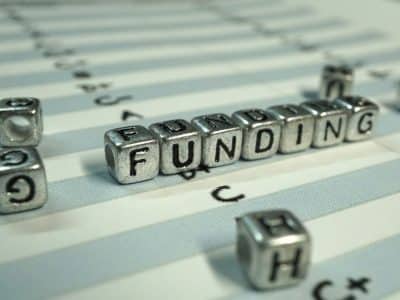Barclays Plc revealed a new regulatory probe and more US lawsuits on Friday,
making it harder for the British lender to rebuild its reputation damaged by the
central role it played in the interest rate-rigging scandal shaking
banks.
Despite these latest blows, Barclays’ profit of more than £4bn
($6.3bn) in the first six months of the year beat forecasts. The bank said
its performance during July was ahead of last year and there had been no exodus
of clients, sending its shares up more than 7 percent.
Barclays said Britain’s financial regulator had started an investigation into
the bank and four current and former senior employees, including finance director Chris Lucas, on whether the bank made
sufficient disclosures about the fees it paid in a 2008 capital
raising.
The fees were payable under commercial agreements related to deals in June
and November 2008. It agreed to get advisory services from Qatar Investment
Authority and explore a relationship with Japan’s Sumitomo Mitsui Banking
Corp.
Barclays raised £4.5bn in June 2008, including from SMBC,
followed by a £7bn cash call in November that year from Qatar and Abu Dhabi
investors to avoid taking a government bailout.
The bank has said it paid £300m in fees on the latter deal,
including about £116m to Qatar Holding and £110m to Sheikh
Mansour Bin Zayed al Nahhan, a member of Abu Dhabi’s royal family.
Roger Jenkins was the main architect of that fundraising. He left Barclays in
early 2009, setting up a Middle East advisory boutique. He is now with Brazilian
investment bank BTG Pactual. Jenkins declined to comment.
The investigation, which the FSA has started in the past month, does not
regard payments to Barclays staff, people familiar with the matter
said.
Barclays also faces more US lawsuits after a record £290m
($455.3m) fine last month for rigging the Libor interest rate benchmark,
sparking fierce criticism about its culture and risk-taking.
More than a dozen other banks are expected to be drawn into the global Libor
investigation and could also be fined.
“We are sorry for the issues that have emerged over recent weeks and
recognize that we have disappointed our customers and shareholders,” Chairman
Marcus Agius said on Friday.
“I am confident we can, and will, repair the reputational damage done to our
business in their eyes and those of all our stakeholders,” Agius said,
reaffirming a commitment to deliver a return on equity of 13 percent.
Barclays is searching for a new chief executive and chairman after they quit
following the Libor scandal.
Agius said the board was focused on filling those positions, but gave no
update on likely timing. Investors are keen for one or both of the CEO or
chairman to come from outside, to be able to implement a far-reaching
overhaul.
A new chairman should be chosen first, so the new chief executive knows who
will be in the chair, Agius said.
Former JP Morgan banker Bill Winters is favorite to be CEO and former UK
Cabinet Secretary Gus O’Donnell is front-runner for chairman, according to
industry sources and UK media reports.
An inquiry by UK lawmakers into the Libor scandal showed that Britain’s
financial regulator had warned Barclays four months earlier that its culture was
too aggressive and must change. It exposed a strained relationship with
regulators, and as the backlash built, the Bank of England effectively forced
Bob Diamond to resign as chief executive.
Agius, a Cambridge- and Harvard-educated pillar of London banking who has
been criticized for not reining in Diamond, has taken on executive duties but
will leave when a successor is found.
Barclays had already been named as a defendant in class action lawsuits in
US federal courts for its role as a contributor to the US dollar Libor
panel. Another class action was filed for its roles on Japanese Yen Libor
panels.
A new class action was started on July 6 against Barclays and other Euribor
panel banks alleging manipulation, and the bank and a current and former
director have been named as defendants in a pending class action for its role as
a Libor contributor and alleging mis-statements in past annual reports.
The threat of litigation is a concern to investors, who are keen to see what
Barclays is doing to rebuild its brand and restore shareholders’
confidence.
The bank reported an underlying pretax profit of £4.2bn ($6.6bn) for the six months to the end of June, above an average forecast of £3.8bn from analysts polled by the company and up 13 percent from a year
ago.
It said it faces a bill of £450m to pay compensation to
customers misled about interest-rate hedging products to small businesses. The
figure is based on initial estimates and Barclays said the ultimate cost is
uncertain.
Barclays’ investment bank fared better than most rivals in a tough second
quarter, with income of £3bn up 5 percent from a year ago and down
12 percent on the first quarter.
Barclays is reviewing all parts of its investment bank, people familiar with
the matter said, and the Libor scandal has intensified calls for it to shrink
the business.
It said its statutory profit fell 71 percent to £759m including
the fine, interest rate mis-selling charge and movement in the value of its own
debt.








